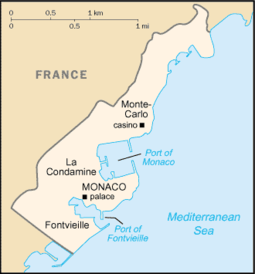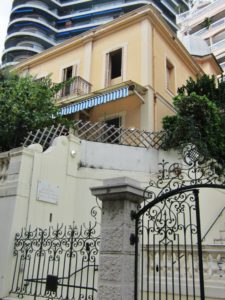 There were around Jews who lived in Monaco prior to World War II. Most of the Jews in Monaco during World War II were from other countries, who had travelled to Monaco under the belief that they would be safe in a neutral country. Monaco’s government issued false papers to protect its Jewish citizens from the Nazis. Prince Louis II refused to dismiss Jewish civil servants and protected Édouard de Rothschild from deportation. But over 90 Jews living in Monaco were deported to concentration camps and only 9 of those Jews survived the war.
There were around Jews who lived in Monaco prior to World War II. Most of the Jews in Monaco during World War II were from other countries, who had travelled to Monaco under the belief that they would be safe in a neutral country. Monaco’s government issued false papers to protect its Jewish citizens from the Nazis. Prince Louis II refused to dismiss Jewish civil servants and protected Édouard de Rothschild from deportation. But over 90 Jews living in Monaco were deported to concentration camps and only 9 of those Jews survived the war.
In 1948, the Association Cultuelle Israelite de Monaco was founded as the official organization of Monaco’s Jewish community, and it provides the community with a synagogue, Hebrew school and kosher food store.  Today’s Jewish community in Monaco consists primarily of retirees from France and the United Kingdom, and there is also a small population of North African and Turkish Jews. While Monaco has almost no Jewish citizens, there are approximately 1,000 Jewish expatriates of other countries.
Today’s Jewish community in Monaco consists primarily of retirees from France and the United Kingdom, and there is also a small population of North African and Turkish Jews. While Monaco has almost no Jewish citizens, there are approximately 1,000 Jewish expatriates of other countries.
In 2015, Prince Albert apologised for Monaco’s role in deporting Jews to Nazi camps Prince and declared: “We did not protect them … In distress, they came specifically to take shelter with us, thinking they would find neutrality. We committed the irreparable in handing over … women, men and a child who had taken refuge with us to escape the persecutions they had suffered in France.” He also unveiled a monument at the Monaco cemetery on Thursday carved with the names of deported Jews. The Monaco government has also agreed to compensate families for the loss of property seized from deported Jews.
The Simon Wiesenthal Centre has now been granted access to Holocaust Period Archives and are examining records particularly in respect to:
- Seizure of valuables;
- Blocked bank accounts and deposit boxes;
- Theft of art objects, book collections, musical instruments, etc.;
- Auction sales of Jewish assets and properties;
- Indemnification for spoliation and “aryanization” of businesses.